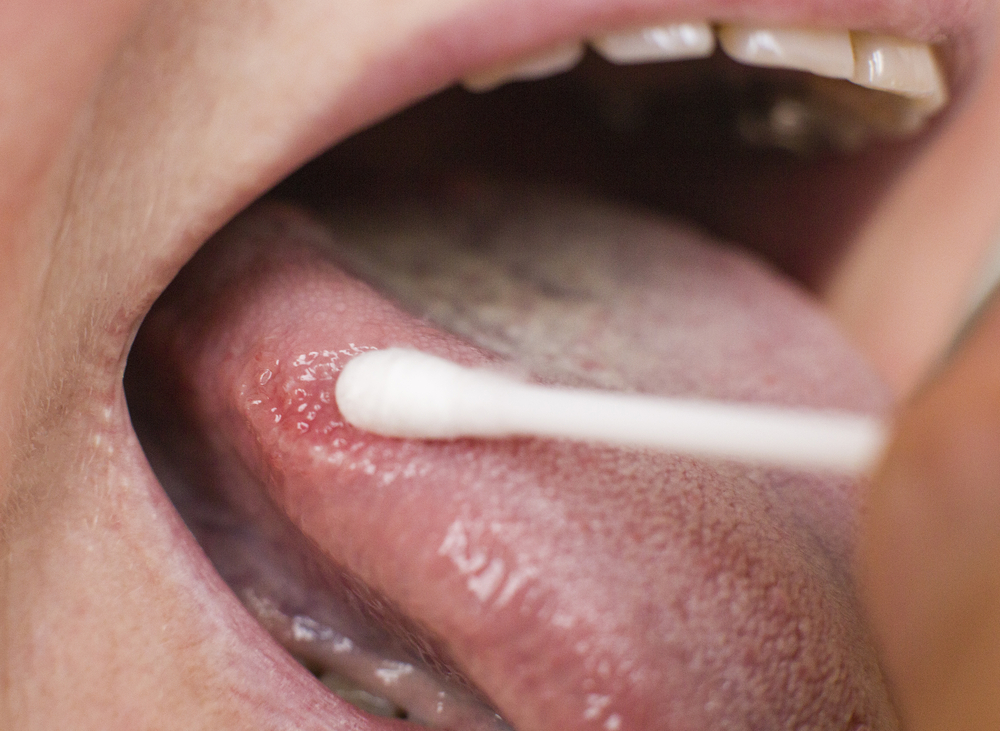
Your mouth has numerous different kinds of cells. Mouth cancer develops in different ways, and different types require their own care and treatment plans. Because of these different kinds of cells inside the mouth, different types of mouth cancers can also develop. This is determined by the specific type of cells they began in.
Most variants of mouth cancers are categorized as squamous cell carcinoma, despite the location from which it begins. Some types of cancers are:
Squamous Cell Carcinoma
Over 90% of cancers of the oral cavity are squamous cell carcinoma. Squamous cells resemble fish scales and are thin, flat cells. They are located in the tissue forming the lining of hollow organs inside the body, the lining of the digestive and respiratory tracts and the skin’s surface. The term carcinoma means cancer.
Squamous cell carcinoma often occurs on body parts exposed to the sun’s rays frequently, such as the ears, neck and face. However, this type of cancer also arises inside the mouth. If you are concerned about an abnormal sore in your mouth, this Mackay dentist has 36 years of diagnostic experience.
Oral Melanoma
Oral melanoma is another type of oral cancer, and it begins in the skin’s pigment-producing cells, which are responsible for giving the skin its colour. Melanoma of the neck or head can occur on the skin and inside the oral or nasal cavity.
Another less common type of cancer of the oral cavity is:
- Oral Verrucous Carcinoma: This is a rare subcategory of squamous cell carcinoma
Where oral cancer begins
Although most oral cancers are squamous cell carcinoma, the treatment that the doctor recommends is determined by the exact location of this cancer. Here are the specific areas where they can arise:
- Buccal mucosa cancer or inner cheek cancer: Often occurs as a lump inside the cheek tissue.
- Mouth or floor cancer: This type of cancer is usually mistaken for canker sores. It starts under the tongue, right in the horseshoe-shaped area.
- Gum cancer: People frequently mistake gum cancer for gingivitis. When found early, this oral cancer is highly treatable.
- Hard palate cancer: Cancers beginning in the hard palate are pretty rare. A common sign is the occurrence of an ulcer on the roof of one’s mouth.
- Lip cancer: It is possible to cure lip cancer when diagnosed early.
- Tongue cancer
Treating oral cancers
Unfortunately, a substantial percentage of people suffering from squamous cell carcinoma of the oral cavity don’t survive. However, some dental researchers in the U.S. have discovered that inhibiting or completely deleting a protein in the tongue could hinder tumour growth.
Researchers at the Henry M. Goldman School of Dental Medicine at Boston University have discovered that genetically deleting or just inhibiting a protein that seems to increase the growth of a type of cancer might assist in limiting the development and growth of a tumour.
Who is at risk of mouth cancer?
It is impossible for doctors to accurately explain why one person may get oral cancer and the other wouldn’t every time. However, it is already settled that cancer is not contagious, meaning you cannot catch it from someone else. Studies have indicated that people with certain risk factors are more likely to develop it than others. Some risk factors for mouth cancer are;
- Smoking cigars, cigarettes or pipes and using tobacco and tobacco products have all been linked to oral cancer.
- Those that take alcohol have a higher likelihood of developing oral cancer than those who don’t. The risk is even higher for people who smoke and drink.
- Lip cancer can result from overexposure to the sun.
Research has also been done to determine whether there is a link between alcohol-based mouthwash and oral cancer.
Take away
Taking steps such as quitting tobacco usage and reducing alcohol intake can help to reduce your risk of oral cancer. If you have cancer of the tongue, some types of oral cancer or throat cancer, a glossectomy surgery can be undertaken to remove part of your tongue.




